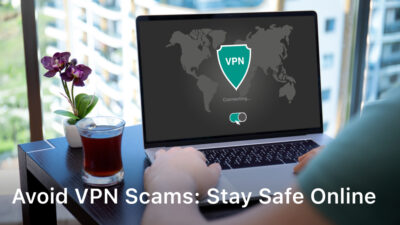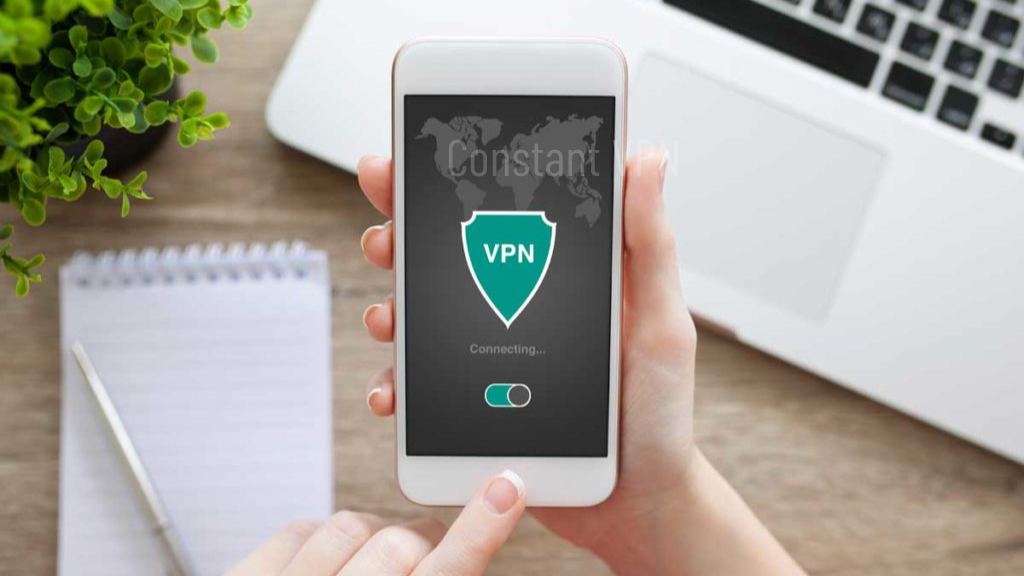Avoid VPN Scams: Stay Safe Online

Welcome to our comprehensive guide on how to protect yourself against VPN scams. In today’s digital world, online privacy and security are paramount. However, with the increasing popularity of Virtual Private Networks (VPNs), it’s essential to be aware of potential scams and fraudulent providers.
In this section, we will equip you with expert tips on how to spot VPN scams, protect against them, and prevent falling victim to malicious practices. By staying informed and vigilant, you can ensure your online activities remain private and secure.

Understanding VPNs and Their Benefits
Before diving into how to avoid VPN scams, it’s crucial to understand what VPNs are and why they are beneficial for online security. VPN stands for Virtual Private Network, a technology that creates a secure and encrypted connection between your device and the internet. Here’s why VPNs are essential:
- Privacy and Anonymity: A secure VPN provider ensures that your online activities remain private and anonymous by encrypting your internet traffic and masking your IP address.
- Security: VPNs protect your data from cybercriminals and hackers by encrypting it, making it virtually impossible for anyone to intercept and decipher your sensitive information.
- Access to Restricted Content: VPNs allow you to bypass geo-restrictions and access region-locked content. With a VPN, you can securely browse the internet and enjoy unrestricted access to the content you want.
- Public Wi-Fi Protection: When using public Wi-Fi networks, VPNs shield your data from prying eyes. They create a secure tunnel that prevents others on the same network from accessing your information.
- Remote Access: VPNs enable secure remote access to networks, making it convenient for remote workers or travelers to connect to their company’s internal resources without compromising security.
Essential Tips for VPN Security
Now that you understand the benefits of VPNs, here are some essential tips to ensure your VPN usage remains secure:
- Choose a reliable and secure VPN provider that values your privacy and has a strong reputation in the industry.
- Always use the latest version of your VPN software to benefit from the latest security patches and improvements.
- Enable the kill switch feature in your VPN software. This will prevent any data leaks if your VPN connection drops unexpectedly.
- Regularly update your device’s operating system, antivirus software, and other security applications to protect against vulnerabilities.
- Avoid logging into sensitive accounts or making financial transactions while connected to public Wi-Fi networks, even with a VPN. Opt for cellular data or a trusted network instead.
- Be cautious when downloading and installing VPN apps from third-party sources. Stick to official app stores to minimize the risk of downloading malware-infected apps impersonating VPN providers.
By understanding what VPNs are and following these essential security tips, you can enjoy the benefits of a secure VPN provider while safeguarding your online activities from potential threats.
Common VPN Scams to Watch Out For
When it comes to staying safe online, being aware of common VPN scams is essential. By familiarizing yourself with these fraudulent practices, you can take proactive measures to protect your personal information and prevent VPN fraud.
1. Free VPNs with Hidden Costs
One common scam involves free VPN services that claim to offer unlimited security but come with hidden costs. These may include selling user data to third parties or bombarding you with intrusive ads. Always read the fine print and carefully research the reputation of any free VPN before using it.
2. Fake VPN Websites
Scammers often create convincing fake websites that mimic reputable VPN providers. These sites may use similar logos, layouts, and even customer testimonials to deceive unsuspecting users. To avoid falling for this trap, double-check the website URL, look for SSL encryption (https), and read reviews from trusted sources.
3. Phishing Scams
Phishing scams involve attackers posing as legitimate VPN providers and sending deceptive emails or messages to trick users into revealing their login credentials or financial information. Be cautious of any unsolicited emails or messages requesting personal or sensitive data. Always verify the authenticity of the sender before responding or clicking on any links.
4. Fake VPN Apps
Scammers may create counterfeit VPN apps that appear legitimate but are designed to steal your data or infect your device with malware. Only download VPN apps from reputable sources such as official app stores or the VPN provider’s official website.
5. Lifetime Subscription Scams
Some VPN providers offer lifetime subscription plans at incredibly low prices to entice users. However, these scams often end up providing subpar service or shutting down unexpectedly, leaving users without the VPN they paid for. It’s important to research the reputation of the VPN provider and avoid deals that seem too good to be true.
By staying vigilant and informed about the common VPN scams mentioned above, you can safeguard yourself from fraud, protect your personal information, and have a secure online experience.
How to Spot a Legitimate VPN Provider
Choosing a reliable VPN provider can be a daunting task, given the vast number of options available in the market. To ensure your online security and privacy, it’s crucial to distinguish between legitimate VPN providers and scams. Here are some essential guidelines to help you make an informed decision:
- Research the provider: Start by researching the VPN provider extensively. Look for customer reviews, ratings, and feedback on reputable websites. This will give you insights into their reputation and reliability.
- Check for a clear privacy policy: A legitimate VPN provider should have a transparent privacy policy that clearly states how they handle user data. Make sure the policy aligns with your privacy requirements.
- Encryption and protocol: Look for a VPN provider that offers robust encryption and a variety of secure protocols. This ensures that your data remains protected and your online activities are encrypted.
- Server network: Consider the size and location of the VPN provider’s server network. A wider server network allows for better connection options and enhances your browsing experience.
- Customer support: Reliable VPN providers offer excellent customer support to assist you in case of any issues or concerns. Look for providers that offer multiple support channels and respond promptly to queries.
By following these guidelines, you can identify a legitimate VPN provider and select a service that suits your privacy needs. Remember, choosing a reliable VPN is crucial to ensure your online security and protect your sensitive information from falling into the wrong hands.
Red Flags That Indicate a VPN Scam
When it comes to VPN scams, scammers can be quite cunning in their tactics to deceive unsuspecting users. Recognizing the red flags that indicate a potential VPN scam is essential in protecting yourself and maintaining your online privacy. Here are some warning signs to look out for:
- Unrealistic Claims: Be cautious of VPN providers that promise unrealistic benefits, such as 100% anonymity or unlimited bandwidth. If it sounds too good to be true, it probably is.
- Free VPN Services: While there are reputable free VPN services available, be cautious of those that offer their services entirely for free. Scammers may use these services as a disguise to collect and sell your personal information.
- Unsecure Website: Before choosing a VPN provider, check for the security of their website. A reputable VPN provider will have a secure website with a valid SSL certificate.
- Poor Customer Support: If the VPN provider lacks responsive and helpful customer support, it could be a red flag indicating a potential scam. Legitimate providers prioritize customer satisfaction and provide prompt assistance.
- Unusual Payment Methods: Be wary of VPN providers that only accept unconventional payment methods or insist on cryptocurrency transactions. Genuine VPN providers usually offer a variety of secure payment options.
By being aware of these red flags, you can protect yourself against VPN scams and make informed decisions when choosing a VPN provider. Stay vigilant and trust your instincts to avoid falling victim to fraudulent practices.
Conclusion
Protecting yourself from potential VPN scams is essential for maintaining online security and privacy. By staying informed and following the guidelines outlined in this article, you can avoid falling victim to fraudulent VPN providers and ensure your personal information remains safe.
Remember to research and choose a reliable VPN service that meets your specific security needs. Look out for red flags that may indicate a potential scam, such as exaggerated claims, suspicious payment methods, and unverified user reviews. By being cautious and vigilant, you can minimize the risk of becoming a victim of a VPN scam.
Furthermore, it’s important to prioritize your online privacy and take proactive measures to protect yourself. Regularly update your security software, use strong and unique passwords, and be wary of phishing attempts. Educating yourself about common VPN scams and staying informed about the latest online security practices will help you stay safe online.
FAQ
What are VPN scams and why should I avoid them?
VPN scams refer to fraudulent practices by fake VPN providers aiming to deceive users and compromise their personal information. It is essential to avoid VPN scams to protect your online privacy and ensure the security of your data.
How can I protect myself against VPN scams?
To protect yourself against VPN scams, it is essential to choose a reliable VPN provider that has a good reputation and positive user reviews. Additionally, be cautious of overly attractive offers, suspicious payment methods, and unverifiable claims made by VPN providers.
What are some tips for spotting VPN scams?
Some tips for spotting VPN scams include researching the VPN provider’s background, checking for clear and transparent privacy policies, and verifying the provider’s contact information. Avoid providers that offer free VPN services as they might be more likely to engage in fraudulent activities.
What are the consequences of falling victim to a VPN scam?
Falling victim to a VPN scam can have severe consequences, including compromising your online privacy, identity theft, and financial loss. Scammers can gain access to your personal information, use it for illicit activities, or sell it to third parties.
How can I ensure I choose a legitimate VPN provider?
To ensure you choose a legitimate VPN provider, consider factors such as the provider’s reputation, user reviews, customer support availability, and the number of servers and locations offered. It is also crucial to check if the provider uses strong encryption and has a strict no-logs policy.
What should I do if I have already been scammed by a VPN provider?
If you have already been scammed by a VPN provider, it is recommended to immediately stop using their services, contact your bank or credit card provider to report the fraud, and change your passwords for all online accounts. You can also report the scam to relevant authorities or consumer protection agencies.